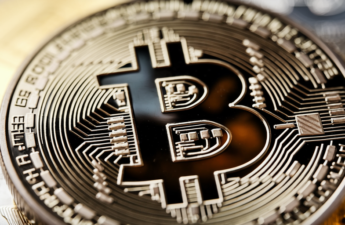Omnia Mea Mecum Porto (All That Is Mine I Carry With Me)
It is often enough said, and not without a grain of truth, that the poorest man is in the end the happiest, although no one can envy him for that happiness. Throughout the ages, or perhaps from the very moment when Zeus blinded Pluto so that he would not always favor the good, people have tried to convince the poor that they were happy even though they had no money. In a thousand different ways they have been told that in the needy classes there are the cheerful and contented faces, while in the rich ones there are the morose, bitter, and dissatisfied ones; that only for the poor can life be a gift, even though it may sometimes seem to have all the characteristics of a debt contracted.
Some of us, however, are so revolted by few things as to hear philosophers and parish priests preaching humility and love of poverty to people who have nothing to drop dead on, for it is impossible for us to admit the idea that only a tenth part of men should have access to riches, while the other nine are relegated to serve as the material and means of getting them. There are those of us who believe, indeed, that nothing is so ugly as having no money, and that when one is in the power of misery one’s hands are tied, and even one’s tongue is chained. The humble man is convinced that poverty is the greatest good: this falsehood contains poison, gnaws at his soul, confuses him, fills him with torments; it pushes him against the rocks, chokes him and deprives him of many valuable things. Poverty is a painful, unbearable evil, which has nothing pleasant about it, which torments the one who suffers it together with its sister impotence, and which is not good for anything, even though it has often been said that it is the gateway to the blessed life. The hungry, let it be certain, are better pleased by filling their stomachs with food than by filling their heads with consolations, for it is not reasons, but food that they need to feel moderately satisfied. Do you not realize, you counterfeiters of good, that after not being thirsty it is best to drink, after not being hungry to have something to eat, and after not being cold to have something to wear? Poverty, a painful human illness, is not eliminated with hopes, nor is inequality, and even less so the lack of freedom; it is eliminated with wealth, with property, with the idea that, although its reality is not easy to refute, neither does one have to live with the resignation of thinking that one must accept it.
” My flock, now resting there, how happy thou, That knowest not, I think, thy misery!” -Leopardi, Night Song Of A Wandering Shepherd In Asia, 105.
But let us forgive the simplicity to which the idealization of poverty drags us. Everyone has the right to idealize whatever he wants: this is the first law of nature. Each poor shepherd, after all, counts his flock as he pleases, and values things according to his own interests, which he necessarily loves, even if the rich shepherds do not understand this in the same way. Just as every man has his own voice, and every man has his own face, so every man must have ideas which distinguish him from others. Otherwise, we who think that it is worth in any society, or in any state, to become the owner of some limited property, even if it be the fossil of a lizard, would have nothing to say. Poverty, for us, may be a very beautiful idea, but of no real use, while wealth may be as insecure as you like, but at least it has the advantage of being part of a force. And Bitcoin, as we have already said, we consider it a force; a force that alleviates poverty without encouraging indolence, that understands the concept of wealth more as an opportunity for action than as a pretext for laziness, and that wishes to test men in prosperity so that they do not have to appeal to it in need. We think of it, rather, as just the opposite of our absurd ultra-centralized economic world, which thinks it has enough with collective work in the service of the state, with the mechanical training of the hands, and which has not the slightest idea that wealth is reached by a completely opposite way: by including all peoples within the rules of a single currency, within single laws and a single financial decentralization, so that hopefully the whole earth may at last enjoy true economic justice. There is nothing more pitiful than to see our fellow men suffering evils that could easily be avoided, enduring continual economic losses, overburdened with debts, spending their days in search of means to earn a living, and inevitably dividing themselves into two great classes: between those who are hungrier than they have supper and those who have more supper than they are hungry. It is terrible to see how unjust poverty is, but the consolation lies in the fact that we are the creators of that poverty, and that we therefore suffer from our own miseries. Humanity has always repeated the same fault: that of seeking its only criterion of life in a lousy form of economy, invented and managed by institutions that could not be worse for the welfare and progress of men, for it is they who make them leave their homes to plunder and murder elsewhere, who turn their noble thoughts into shameful actions, who force them to turn their fellow men into victims of all kinds of outrages and wickedness.
“Necessary it is that you rise or fall, / That power and profit you acquire / Or that without profit you serve / That you succumb or triumph / That anvil or hammer you are.” Goethe, Coptic Song.
There are those who celebrate men without wants, though it seems to me that no one who walks upon this world is without wants. Perhaps there are countries where nothing is lacking, but, to this day, no one has given me any news that such countries are to be found anywhere. It is true that I have not traveled much, but in this corner of the earth, at least, I have not seen a single person who has no more needs than means of satisfying them. I do not know of a single place where, because of how well things are going in society, no man is obliged to feed on bread that he must beg, nor where a little more comfort can be found than the eye can comprehend. Everywhere, it is true, there are many people sheltered by wealth, but there are always more who all their existence has been despised by it — those who have missed it without ever having come to know it. Neither the Asians, who are the old men of the world, nor still less the Europeans, who are its mature men, live today under an economic system that can be called just, where each man can consider even one good as his own, and where the increase of what he carries in his pockets is not directly proportional to what is lacking in those of his neighbors. Whatever may be said, and even if he is the most humane person in the world, every man wants to have something that is not counted among the possessions of the common people. Those who desire financial equity are not easy to find, nor do they constitute a great multitude, for otherwise not only would wealth cease to be measured by pocket, by power, and by force, but the gullible and disorganized mass would have some chance to share in the profits, without having to go forever in debt to pay for them.
Since only Bitcoin does not share the injustice of the economists and is not affected by the debts of the poor, it is the only one who should take care of solving the ridiculous inequality that reigns today among men. Would that you, blind inequality, were no longer seen either on land or sea, but dwelt in Tartarus and Acheron, for you share in all the misfortunes of the poor. But, since we have no idea where the old Acheron went to, the only thing we hope for Bitcoin is that it will improve the prevailing inequality in our world, if possible, by a lot, if not, as much as possible, if not, at least a little. Just as violence and the ability to cheat made the first rich, it will help knowledge to make those of the following centuries, so that living according to mathematics no one will be poor, and living according to the misfortune of others, no one will be rich. May it be useless to look for masters or servants in the world, since those who command and those who receive wages from them are equal; that the opportunity to enrich one’s neighbor may be found a hundred times a day, and the opportunity to ruin him once in a hundred years; so that whoever puts a little on top of a little, and does this frequently, soon the little will become a lot.And if so, at last it will be understood that what dignifies equity is the sacrifices it costs, and that having money is a small thing compared to doing the impossible so that others may also have it.
This is a guest post by Anderson Benprado. Opinions expressed are entirely their own and do not necessarily reflect those of BTC, Inc. or Bitcoin Magazine.
Source: https://bitcoinmagazine.com/culture/how-bitcoin-helps-poverty




